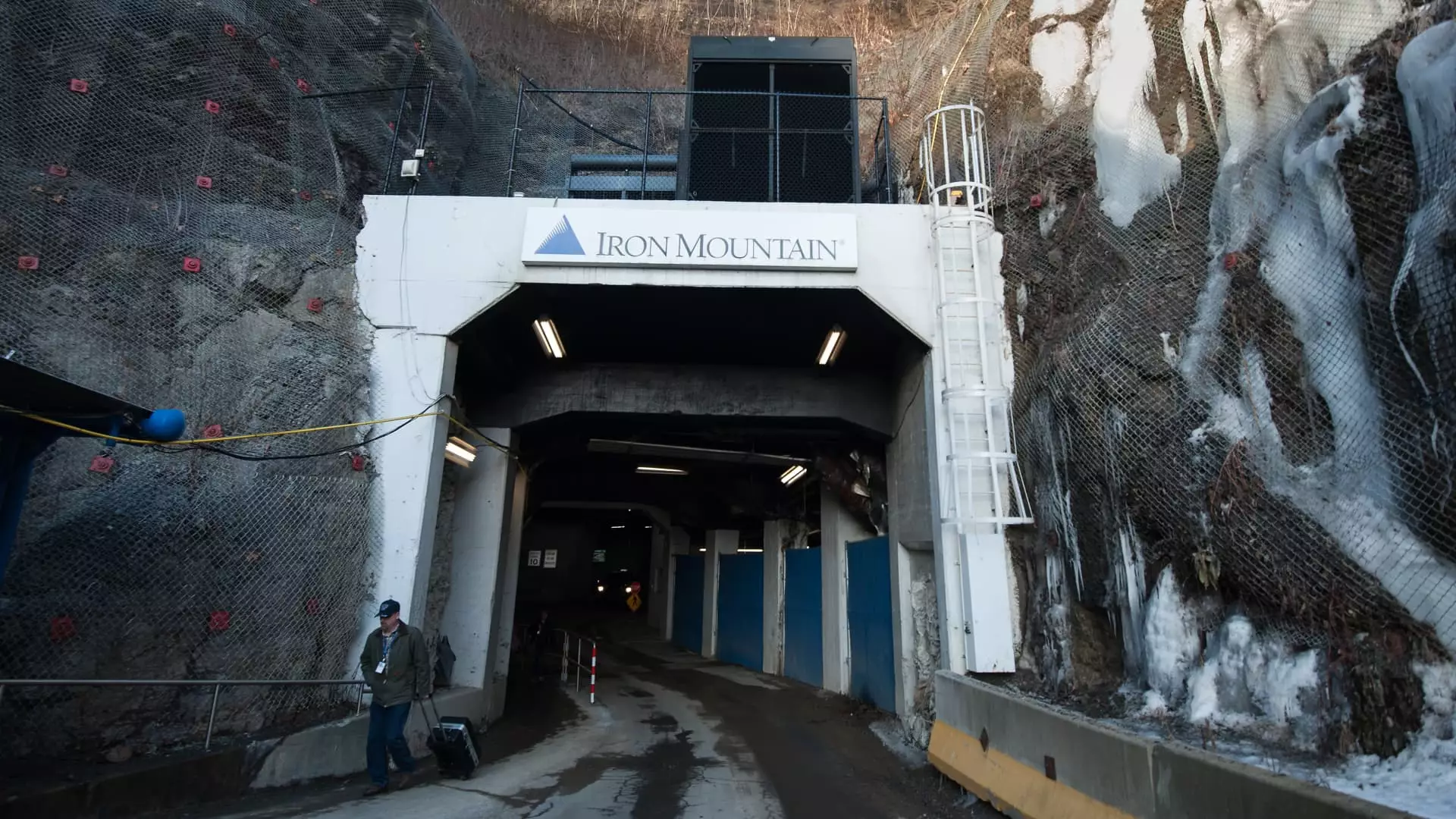In a recent meeting in the Oval Office, Elon Musk, the CEO of Tesla and SpaceX, shared his insights on governmental inefficiency alongside President Donald Trump. This unusual gathering has spurred significant conversation around the obstacles plaguing government functions, particularly focusing on the digitization of archival processes. Musk’s concerns all pivot on a surprising artifact of mid-century infrastructure — a limestone mine housing federal retirement paperwork.
The Outdated Infrastructure of Government Records
Musk characterized the Pennsylvania mine operated by Iron Mountain as a relic of the past—a seemingly archaic structure that embodies inefficiency. Launched in 1955, the mine’s old-world design influences how the government processes retirement claims, and Musk highlighted this bottleneck with incredulity. He stated, “Doesn’t that sound crazy?” This inquiry encapsulates a broader criticism of how government systems often lag behind contemporary technological advancements. With modern demands for speed and efficiency, such outdated mechanisms raise legitimate concerns about governmental capabilities.
Their conversations delve into the crux of what has become a fundamental issue in U.S. governance: can a system primarily based on paper and physical storage keep pace with the rapid developments of the modern digital age? As Musk points out, the slow-paced operation of such mining facilities stifles the efficiency of critical governmental processes. He argued that empowering workers at the mine to handle applications more efficiently could lead to significant improvements in overall productivity.
The turmoil sparked by Musk’s remarks also affected the financial landscape surrounding Iron Mountain, a relatively obscure firm that operates various storage and data services. After Musk’s comments, the company saw its stock plummet by more than 10%, creating palpable unease among its investors. CEO Bill Meaney, however, positioned this crisis as an opportunity for growth, particularly as the company invests in digital transformations within other sectors of the federal government.
Interestingly, while the mine is responsible for a mere $10 million in revenue from government storage, Iron Mountain derives a substantially bigger income of $130 million from other ventures like data centers and digitization. This contrast raises questions about the sustainability of companies that rely heavily on outdated systems. As the government continues its push for more efficient operations, businesses like Iron Mountain must pivot rapidly to stay relevant in a market that increasingly demands innovation.
Musk’s comments not only shed light on Iron Mountain’s business but also amplify ongoing discussions about government spending and bureaucracy. The Trump administration’s mandate to cut fat from federal agencies raises important questions about the nature of governmental contracts and partnerships. The skepticism directed at annual expenditures related to document storage exposes a critical flaw: as technology advances, so too should governmental operations.
Musk’s provocative stance on the retirement paperwork solution hints at a broader potential for the digitization of government processes, illuminating the cumbersome ways in which taxpayer dollars are often allocated. When Musk ominously suggested alternatives to mining work—“you could do practically anything else”—it underscores the need to reevaluate labor allocation and the goal of utilizing human capital for constructive engagements rather than archaic tasks.
Faced with the immediate aftermath of Musk’s statements, analysts have provided a more tempered perspective on Iron Mountain’s market position. Notably, Wells Fargo analyst Eric Luebchow contended that the negative market reaction to Musk’s criticisms was excessive. He highlighted that Iron Mountain’s revenues are not overly reliant on any singular government contract, suggesting long-term resilience despite political fluctuations.
Furthermore, despite Musk’s impactful assertions, Barclays’ Brendan Lynch reiterated that governmental legal obligations dictate record-keeping which, in many cases, could benefit Iron Mountain’s operations. The essential need to archive records can serve as a hedge against significant revenue losses, thus granting Iron Mountain a semblance of stability.
Elon Musk’s bold critique of governmental inefficiency has spark-plugged an essential conversation about providing effective and modern solutions for old bureaucratic systems. This instance of the interaction between a business icon and political leadership opens an avenue for fresh dialogue about public sector reforms and private sector partnerships. As old paradigms of the mid-20th century experience scrutiny, the future beckons for innovative ideas that deliver faster operations, enhance productivity, and ideally, create a seamless interface between government and citizenry.

